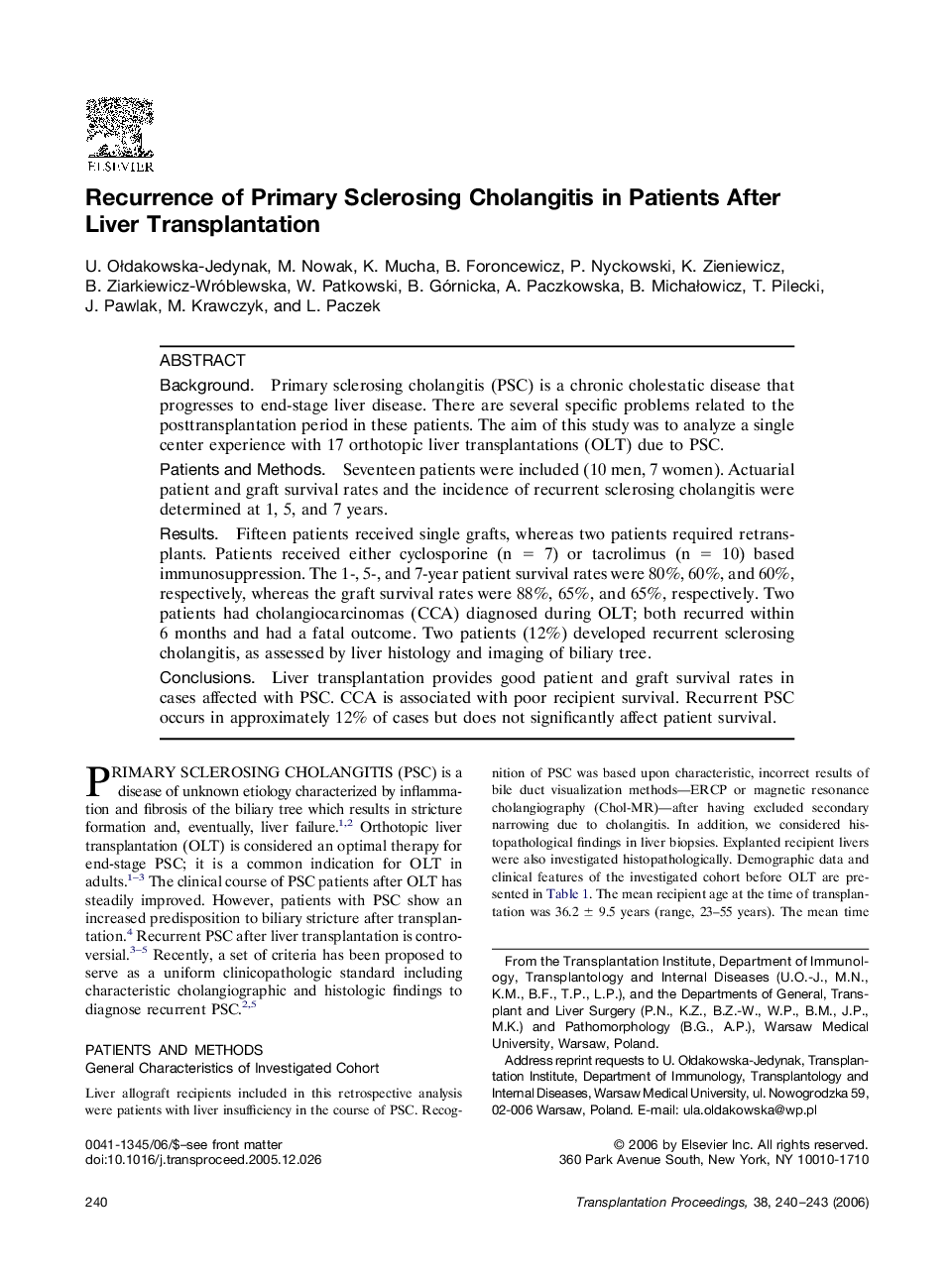| Article ID | Journal | Published Year | Pages | File Type |
|---|---|---|---|---|
| 4261828 | Transplantation Proceedings | 2006 | 4 Pages |
BackgroundPrimary sclerosing cholangitis (PSC) is a chronic cholestatic disease that progresses to end-stage liver disease. There are several specific problems related to the posttransplantation period in these patients. The aim of this study was to analyze a single center experience with 17 orthotopic liver transplantations (OLT) due to PSC.Patients and MethodsSeventeen patients were included (10 men, 7 women). Actuarial patient and graft survival rates and the incidence of recurrent sclerosing cholangitis were determined at 1, 5, and 7 years.ResultsFifteen patients received single grafts, whereas two patients required retransplants. Patients received either cyclosporine (n = 7) or tacrolimus (n = 10) based immunosuppression. The 1-, 5-, and 7-year patient survival rates were 80%, 60%, and 60%, respectively, whereas the graft survival rates were 88%, 65%, and 65%, respectively. Two patients had cholangiocarcinomas (CCA) diagnosed during OLT; both recurred within 6 months and had a fatal outcome. Two patients (12%) developed recurrent sclerosing cholangitis, as assessed by liver histology and imaging of biliary tree.ConclusionsLiver transplantation provides good patient and graft survival rates in cases affected with PSC. CCA is associated with poor recipient survival. Recurrent PSC occurs in approximately 12% of cases but does not significantly affect patient survival.
